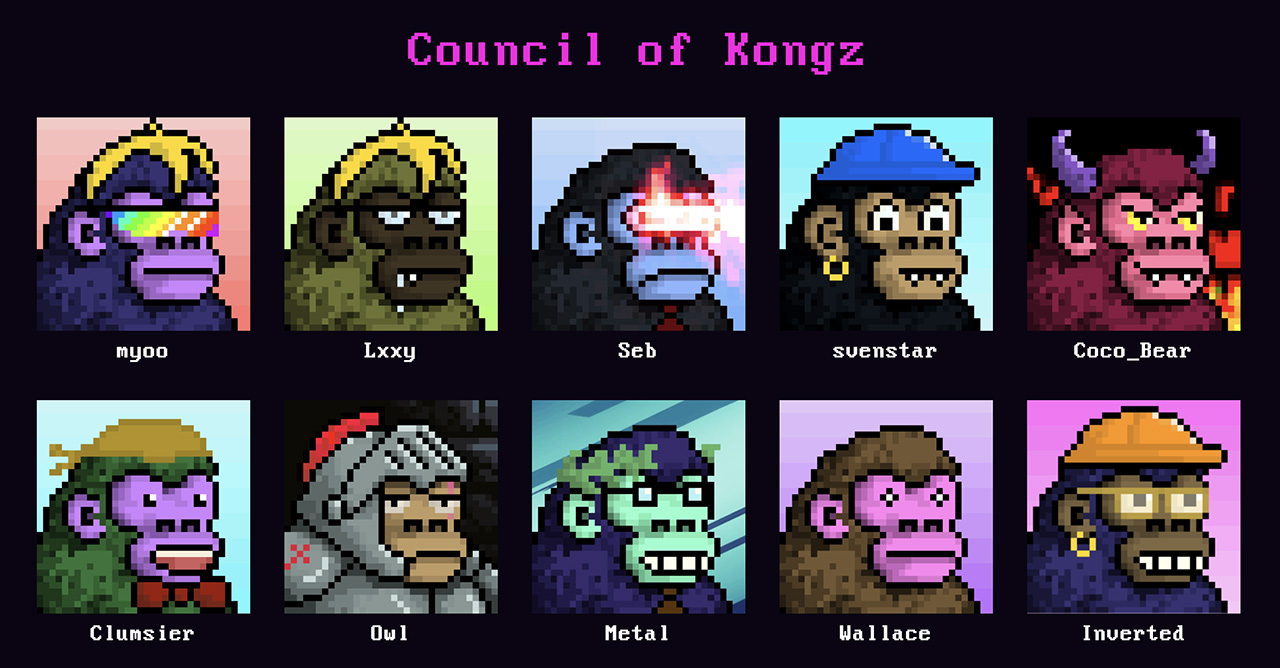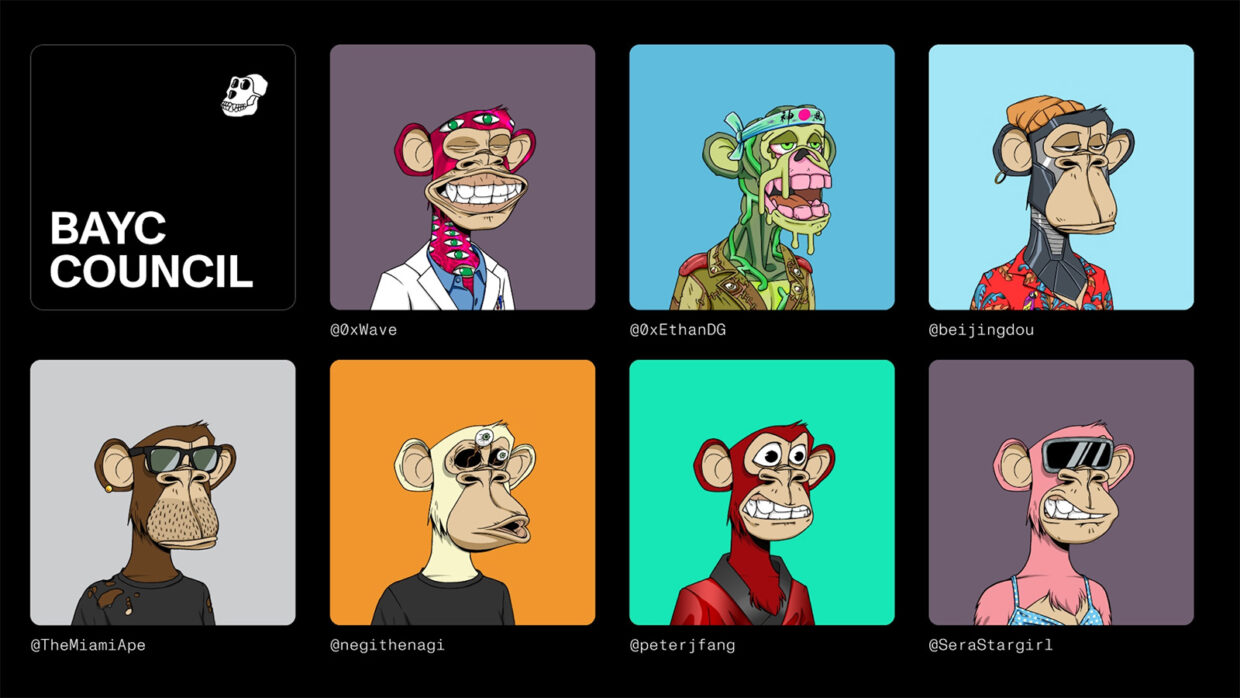Last week, Yuga Labs announced the founding of a community council for its Bored Ape Yacht Club (BAYC) and Mutant Ape Yacht Club (MAYC) collections. Seven “outstanding apes” constitute the first council cohort, which may grow with time. Members of the council were picked for being “present in the community” and “attending meetups and more.”
According to Yuga council members will be tasked with spearheading community initiatives and managing feedback from BAYC NFT holders, essentially “representing the club.” Additionally, the council will seek to “uplift community-driven initiatives” like commercial ventures, BAYC meetups, and philanthropic fundraising.
The future of other Yuga labs holdings — CryptoPunks, Meebits, and Otherside — may go a similar way, with councils created to help facilitate community interactions, but as of now, there’s no additional information.
What is a community council?

Councils could be tools to “help curate, decentralize & empower our community,” wrote Genuine Undead. Image: Cyberkongz’s community council
A community council is an elected or volunteering group of NFT holders and community members who govern or organize other members. In the case of BAYC, a group of collectors were selected to help organize other members. Yuga Lab’s primary coin, ApeCoin, also boasts it own special council or board composed of BAYC holders and voted on by people who hold ApeCoin.
The Genuine Undead (GU), a relatively new NFT community art project, was quick to respond to Yuga’s Twitter announcement with a screenshot of their community values. Since launching in August, GU has grown to host 11 creative councils that are “dedicated to generating ideas, creating content, and developing applications.” GU’s aim with these councils is more pointed than Yuga’s — they’re also interested in “keeping the community safe” from the “grifters, scammers and bad actors running amok in this space.”
Why it matters
It makes sense for Yuga to install a council to better its community outreach and engagement, but might sit uncomfortably in the grander scheme of decentralization.
While most responses from BAYC holders to this news were fairly positive, others expressed frustration at the lack of transparency into how council members were selected. While the council was created to facilitate feedback to Yuga, it seems like it was created without much community feedback. It’s further unclear how long council members will serve — council member 0xWave has written that they’d like to see the council as “a first iteration,” not as a permanent board.
BAYC has seen fabulous community engagement arguably because member engagement wasn’t being tracked for any internal council. One can wonder whether members will create events solely to garner social clout to get a spot on the council, instead of the sheer enjoyment of community building. While this competition might cause rifts between members, it may equally promote engagement, encouraging individuals to reach out to BAYC members they wouldn’t normally have interacted with.



